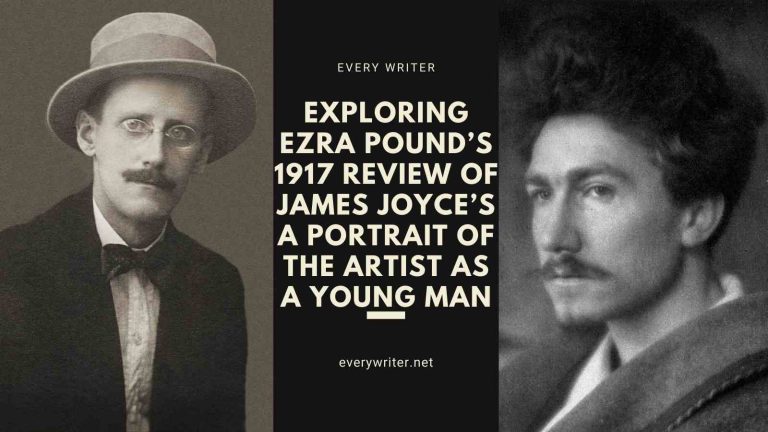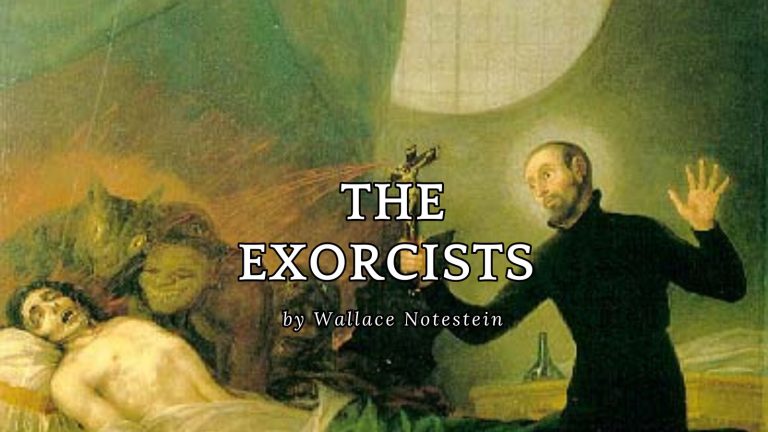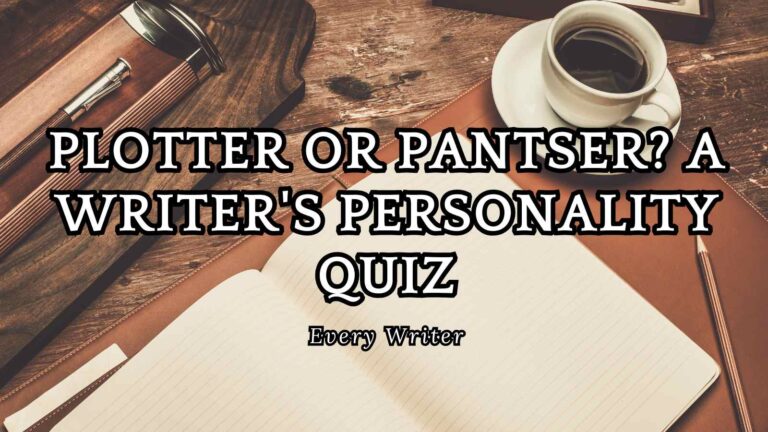THE WRITER HIMSELF
by Robert Saunders Dowst
Critical Faculty—Cultivation of Genius—Observation and Information—Open-mindedness—Attitude Toward Life—Prejudice and Provincialism—The Social Question—Reading—Imagination.
 Accessible as are the data of the fiction writer, the facts and possibilities of life, their very accessibility places him under strict necessity to sift the useful from the useless in search for the pregnant theme. For if life presents a multiplicity of events to the writer, from which he may select some sort of story with little labor to himself, life also presents the same multiplicity of events to the reader, who can see the obvious as well as the lazy writer, and who will not be pleased with a narration of which he has the beginning, middle, and end by heart. A tale which does not interest fails essentially, and novelty, in the undebased sense of the word, is the root of interest. Therefore the writer of fiction who takes himself and his art seriously must develop the open and penetrating eye and the faculty of just selection. All is not gold that glitters, a fact that too often becomes painfully evident only when some tale discovered with joy and developed with eagerness lies coldly spread upon paper. The beginner who will approach his own conceptions in a spirit of unbiased criticism and estimation before determining to set them down will save himself useless labor, much postage, and many secret tears. Half of the essentially feeble work produced that has not a chance of getting published is the result of the writer’s falling in love with his own idea simply because it is his own idea. The defect is in conception rather than in execution, and a matter of first importance to the writer is to develop the faculty of estimating his unelaborated ideas.
Accessible as are the data of the fiction writer, the facts and possibilities of life, their very accessibility places him under strict necessity to sift the useful from the useless in search for the pregnant theme. For if life presents a multiplicity of events to the writer, from which he may select some sort of story with little labor to himself, life also presents the same multiplicity of events to the reader, who can see the obvious as well as the lazy writer, and who will not be pleased with a narration of which he has the beginning, middle, and end by heart. A tale which does not interest fails essentially, and novelty, in the undebased sense of the word, is the root of interest. Therefore the writer of fiction who takes himself and his art seriously must develop the open and penetrating eye and the faculty of just selection. All is not gold that glitters, a fact that too often becomes painfully evident only when some tale discovered with joy and developed with eagerness lies coldly spread upon paper. The beginner who will approach his own conceptions in a spirit of unbiased criticism and estimation before determining to set them down will save himself useless labor, much postage, and many secret tears. Half of the essentially feeble work produced that has not a chance of getting published is the result of the writer’s falling in love with his own idea simply because it is his own idea. The defect is in conception rather than in execution, and a matter of first importance to the writer is to develop the faculty of estimating his unelaborated ideas.
Unquestionably this faculty can be developed. The struggle for its development is half over, in a practical sense, when the writer comes to judge his concepts at all before writing, when he wins free of the habit of writing just to be writing, and of choosing to work on a particular tale because it is the best he can squeeze from his brains at the particular moment, rather than because it is absolutely good and he knows it to be absolutely good.
Unquestionably, too, the critical faculty is powerless to supply worthy conceptions. But that is beside the point. If the conceptions are worthy, the just critical faculty will recognize their merit, and give the writer courage and confidence to send each tale across the almost inevitable sea of rejections until it comes to port, as it surely will, if well done. And if the conceptions are feeble, and the writer cannot better them, it will be better for him and all concerned that he discover the truth.
Whether the essential genius of the teller of tales, the power that first supplies a theme of moment and then a fitting garb for it, is a plant capable of nurture, is not for me to attempt to show, or even to state. Fortunately, the question is academic. The dons may debate the point, but for those who themselves labor in the literary vineyard the thing to remember is that the same habits of observation and practice which some claim will create the literary faculty will at least foster its growth, if it is a gift, as others claim, and not to be artificially cultivated. Steady hours at the desk and moments with the notebook, the cultivation of the seeing eye, the informed mind, and the sympathetic heart, may not be able to create the divine spark. But it may burn within one for all that; and shall one neglect to bring it to full flame on the mere chance that it may not exist because of the possibility that it cannot be created? If the chance of its existence is great enough in the individual’s eyes to justify the labor of writing at all, it is great enough to justify undertaking the correlative activities of observation and self-culture. At the least of it, these can result only in making one a better and more complete man or woman, irrespective of the literary result. The writer who fancies that his labor is but to string words, and that idea or passion come to life in the barren mind or heart, is foredoomed to failure. No equation can be formed between something and nothing, nor can something come from nothing. All life and all art is a quid pro quo; the writer must barter his time and sweat for his raw materials, ideas.
There is little need to state that of writers of equal genius the one with the deepest reservoirs of observation and information to draw upon will produce the more significant work. In relation to expository and argumentive writing the fact is patent; in relation to the writing of fiction it may be less obvious, but, curiously enough, is even more impressive when perceived. The writer of special treatise or argument may “devil” his subject for the occasion; though the writer of fiction may specially investigate the phase of life or society with which he deals, his investigations will aid him only in the external matters of dress, customs, speech, or atmosphere. For the preservation of the essential congruity and justness of the whole as a presentation of life he must depend solely upon his own innate familiarity with life, which cannot be brushed up for the occasion, for it necessarily derives from the totality of the individual’s experience and the use he has made of it.
In this connection it may be noted that above all else the writer of fiction must be catholic in his interests and sympathies. He is the sieve through which the motley stream of life is poured to have selected for presentation its most significant aspects, and any unwisely cherished aversions of his are so many gaps in the netting through which, to his own loss, worthy matter constantly will escape. It is difficult enough at best for even the most open-minded writer to achieve some approach to an adequate presentation of a phase of life, and for the writer whose vision is distorted by prejudice and predilection, however perfect his technique, it is nearly impossible. The writer of fiction is concerned with political, social, or religious dogmas only in so far as they impinge upon and affect the individual life whose course his pen is tracing, and his only proper and fruitful attitude toward such dogmas is that of observer, not of fierce advocate or equally fierce assailant. The heart of the people is sounder than its head, perhaps because larger, and life is a complex of passion rather than a complex of intellectual crusades. The writer of fiction addresses the whole man, his emotional nature as well as his intelligence, and should address him by presenting the whole man, instead of some feeble counterfeit not actuated primarily by passion.
Emotion can be evoked only by the portrayal of passion, and emotion—sympathy, disgust, admiration, any spiritual excitement—is the root of the appeal of fiction. There are other elements of interest, primarily intellectual, as in the detective story or any story of ratiocination, but emotional appeal is the one essential in work of any compass. Emotional appeal is attainable only through a just presentment of life, and toward life the writer of fiction must preserve an attitude of observation and ready acceptance. In the last analysis, that is his business. The world pays its wage to the scientist for the narrow, intensive view; it pays its wage to the teller of tales for the broad, extensive view.
The course of letters is marked by great failures whose essential technical powers were nullified or at least hampered by their narrow outlook on life, and by great successes whose achievements bear the scar of prejudice and provincialism. In our day, the multitudinous standing controversies of the past have been reduced in bitterness by the more general diffusion of information and by the conflicting claims of more numerous interests that demand exercise. Nevertheless we still have the division between rich and poor, capital and labor, conservative and radical. For reasons immaterial here, this division and resulting social conflict will become more complete and bitter; the writer of fiction will face the fact and be forced to deal with it at times; and it is to be remembered that one may be abreast or even ahead of the best thought of the day without being hectic, and that to draw the conservative of fiction as a fool or a villain simply because he is a conservative is bad art. Conceivably a man may be back in the ruck of thought and belief because he is a fool, but he is not a fool merely because he is behind the times. He may have had no chance to learn better, and that is precisely the story.
Besides viewing life with a sympathetic and inclusive eye, the writer of fiction should investigate the smaller world of books. Life is infinitely more rich in substance than the printed word, but the observer is not a disembodied spirit, and cannot scrutinize the whole world, cannot exhaust even his own little neighborhood. He can call to his service the eyes of his contemporaries and of those who have gone before, and, in a few hours reading, can live vicariously a dozen lives. In this very real sense the world of books is practically larger than the actual world; one can hope to exhaust its more significant matter. By reading, the writer of fiction can gain familiarity with the actual tissue of life, the casual relation between motives and acts—so often obscured in real life—can mingle with nobler, baser, more significant people than he will be apt to meet, and can estimate the efforts of others in his own art. Reading of all sorts will yield information, and reading of fiction will reveal the root causes of success and failure in the difficult task to precipitate life in words.
There is little need to emphasize the difficulty of the task, twofold as it is. One must find matter, and one must display it. Not only will reading conduce to mental development and flexibility; it will reveal the function of the single word. Life is seen in chiaroscuro, but words are sharp and definite things. As Stevenson has said, the writer must work in mosaic, with finite and quite rigid words. If he really works, scorning to abuse a noble instrument and to prostitute a noble profession, his difficulties will but increase with his earnestness. Flaubert is a case in point. Only by reading can the writer discover the resources of language, and only by reading can he find encouragement in the spectacle of what patience and devotion have achieved.
One may employ a method of literary presentment diametrically opposite to that of fitting the right word in the right place, the method of taking a broad canvas, disregarding length, and, in a sort, modeling the verbal mass, which will possess plasticity to an extent, though composed of words intractable and rigid in themselves, like the atoms which compose modeler’s clay. But this method is open only to the writer of a novel of epic length; the verbal economy of the short story forbids it; and it will usually be found that the books which manifest it—”Les Miserables,” “David Copperfield,” “Tom Jones,” “Jean Christophe,” “War and Peace,” much of Thackeray’s work, for instance—owe their appeal to the essential vitality and worth of their matter rather than to any detailed perfection of artistry. If the story is worthy, it will not be injured by compact and artistic expression; the function of the artist is to select the significant from life and to present it as pungently and as perfectly as possible; brevity in expression is as essential as economy of line in drawing. I have read and heard it stated that Stevenson and many others eminent for artistry are thin and self-conscious in their work, and personally I would give much to know whether this impression does not derive from the fact that many of the accepted great books of the world, and most of those appearing day by day, are negligible as examples of executive artistry, by their contrast making the occasional work that is concisely and artistically done seem somewhat artificial. The reader is perhaps so accustomed to imperfect work that the perfect has a touch of artificial glitter, and seems unreal. But this is a digression. The fact remains that the writer of fiction who would live by his art cannot afford to go in ignorance of what has been done before him. He should read, widely and with all his faculties on the stretch. A vast amount of experiment lies ready on the printed page. One may not by reading learn how to do perfect work, but one can at least discover what cannot by any possibility be done.
The general proposition is that the writer of fiction must observe life, must estimate it, and must express the phase that his estimation shows to be significant. The open eye, the cultivated and able mind, and the trained hand are all equally essential, and all must work together in harmony. Some have the eye without the hand; some the hand without the eye; in others the faculty of discrimination is wanting; but eye, mind, and hand may all be trained by application. No one who has not done his best has the right to complain of failure, and he who engages in the difficult business of letters, and neglects to use all efforts to equip himself, is a fool and nothing else. The writer may live in prosaic surroundings and be repressed by daily contact with people as dull as ditchwater; yet the world is wide and man a free agent within limits; let him strike his tent and go elsewhere. But let him first make quite sure that the defect is in his environment and not in himself. Otherwise, when ensconced in a snug artistic Bohemia, he may suffer the pain of learning that some quiet, clear-eyed seer has found rich ores in the old home life, and has wrought them to fresh shapes of beauty. And beyond the influence of all accidents of time and place lies the world of imagination, instinct with austere beauty, offering escape, solace, and rich gifts to him who has the golden key. Investigate the life that was Hawthorne’s in Salem, Massachusetts, in the thirties and forties, then read “The Scarlet Letter,” and turn your eyes within if ugliness lies stark about you. No boor and dullard may walk with you in the fields of fancy, alone with the night wind and the quiet stars. Dream with sanity, live with sanity, work with sanity and purpose, and realize that life and thought are your business, and that the stream of life as a whole is clean and fresh and sweet and utterly interesting even if you yourself are caught in some stagnant backwater. Open your eyes and swim for the clear reaches of the stream.
- 8 Authors Who Created Literary Masterpieces Keeping Their Day Jobs - March 31, 2025
- Plotter or Pantser? A Writer’s Personality Quiz - March 30, 2025
- 100 Must-Try Mystery Writing Prompts (Solve the Perfect Crime!) - March 22, 2025






